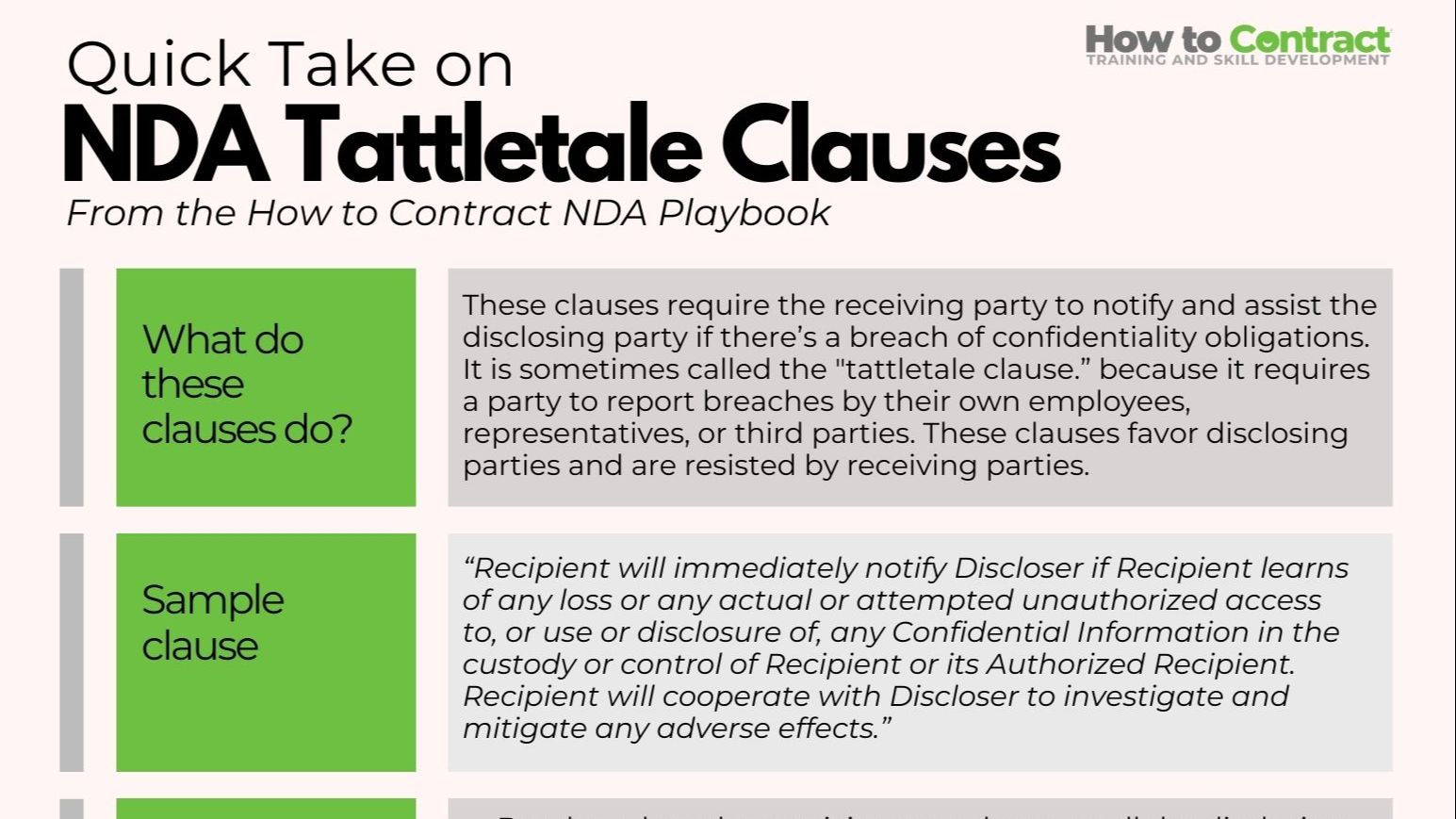NDA and Confidentiality Issue Spotlight
Tattletale Clauses in NDAs
Return to NDA and Confidentiality Training HubLearn what you need to know about tattletale clauses in non-disclosure agreements (NDAs)
Prefer a PDF? Download the full guide on tattletale provisions in NDAs for free. Perfect for offline reading and quick reference.
Download Tattletale Clauses Quick Take
What are tattletale clauses?
These clauses require the receiving party to notify and assist the disclosing party if there’s a breach of confidentiality obligations. It is sometimes called the "tattletale clause.” because it requires an NDA party to report breaches by their own employees, representatives, or third parties. These clauses favor disclosing parties and are resisted by receiving parties.
Big issues
By when does the receiving party have to tell the disclosing party of the breach?
What kind of breaches are covered? All or only material ones?
How does this requirement overlap with data breach disclosure obligations under privacy laws?
Whose breach has to be disclosed? Is it their employees, authorized parties, or any third party?
Clause example
“Recipient will immediately notify Discloser if Recipient learns of any loss or any actual or attempted unauthorized access to, or use or disclosure of, any Confidential Information in the custody or control of Recipient or its Authorized Recipient. Recipient will cooperate with Discloser to investigate and mitigate any adverse effects.”
Disclosing party's issues and strategies
Disclosing parties want immediate notice. They may need to act fast to pursue an injunction or take other action to prevent further harm.
Script: “You have to tell us immediately. We need to know so we can take proactive steps to ensure our information qualifies as trade secrets. If we fail to take steps after disclosure, we could lose that status.”
Receiving party's issues and strategies
Receiving parties have to take care not to violate their other agreements or obligations to their employees. Consider whose knowledge triggers the requirement.
Script: “If there is a legal requirement to disclose a breach, we'll notify you. Otherwise, we can't be in breach because some information was inadvertently disclosed. There's no other obligation to tell you every time we fail to meet a requirement. It also doesn't work in the real world. There’s rarely a smoking gun and we don’t want you coming after us.”
What is a non-disclosure agreement or NDA?
Non-disclosure agreements, called NDAs, are contracts between parties that want to protect confidential, proprietary, and trade secret information and materials they share. The NDA describes each party's rights and obligations and what happens if there is an NDA breach.
NDAs are standalone agreements, meaning they can exist independently of any other contract documents. That said, most people sign an NDA in anticipation of negotiating a separate contract. If they sign that separate agreement, the parties have to decide whether to terminate the NDA or incorporate it by reference into the main agreement.
Sign up for The Contract Strategist newsletter
Our newsletter contains contracting strategies, course discounts, HTC updates, and more. Unsubscribe anytime.



